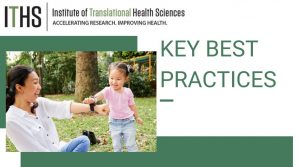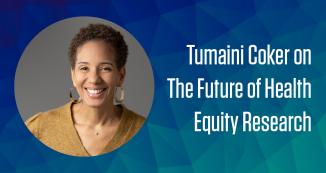
22 Nov Introducing New Teleresearch Guidelines for Health Equity
An ITHS team has developed a new resource to promote health equity within research that’s done virtually.
“Guidelines for Equitable and Effective Teleresearch Engagement” was published in November of 2024, and can be found under the ‘Equity in Research Resources” tab on the ISP home page.
Developed by Integrating Special Populations (ISP) co-directors Drs. Tumaini Coker and Brian Saelens, these new guidelines are intended to support researchers and research teams to improve lifespan engagement of teleresearch (i.e., research using remote technologies and methods) throughout ITHS partner institutions and across the WWAMI region.
Researchers and research teams currently or planning to use remote methods stand to benefit most from this resource, as they look to engage participants.
You can find the resources ISP has developed on our Equity in Research Resources page. These include:
- Guidelines for Equitable and Effective Teleresearch Engagement
- Equitable Research Best Practices
- Community Partnership Guide For Engaging With Academic Researchers
- Institutional Best Practices for Facilitating Engagement of Diverse Populations in Clinical Trials
ISP is a program focused on increasing engagement, enrollment, and retention of children, youth, and older adults, particularly from racially/ethnically and economically diverse populations, in research. ISP works closely with the Seattle Children’s Center for Diversity & Health Equity (CDHE) and Health Equity Research Community Advisory Council (CAC).
In partnership with CDHE and CAC, the ISP program focuses on:
- Broad stakeholder engagement to affect change
- Eliminating institutional barriers to diversity in research participation
- Identifying strategies that can be implemented at the study, program, center, and institutional level to advance access to research for children, youth, and older adults, particularly from racially/ethnically and economically diverse populations.
ISP also develops services and training for investigators and community organizations to enable more racial/ethnic and economic diversity of youth and older adults in research..
Learn more about ISP here.







